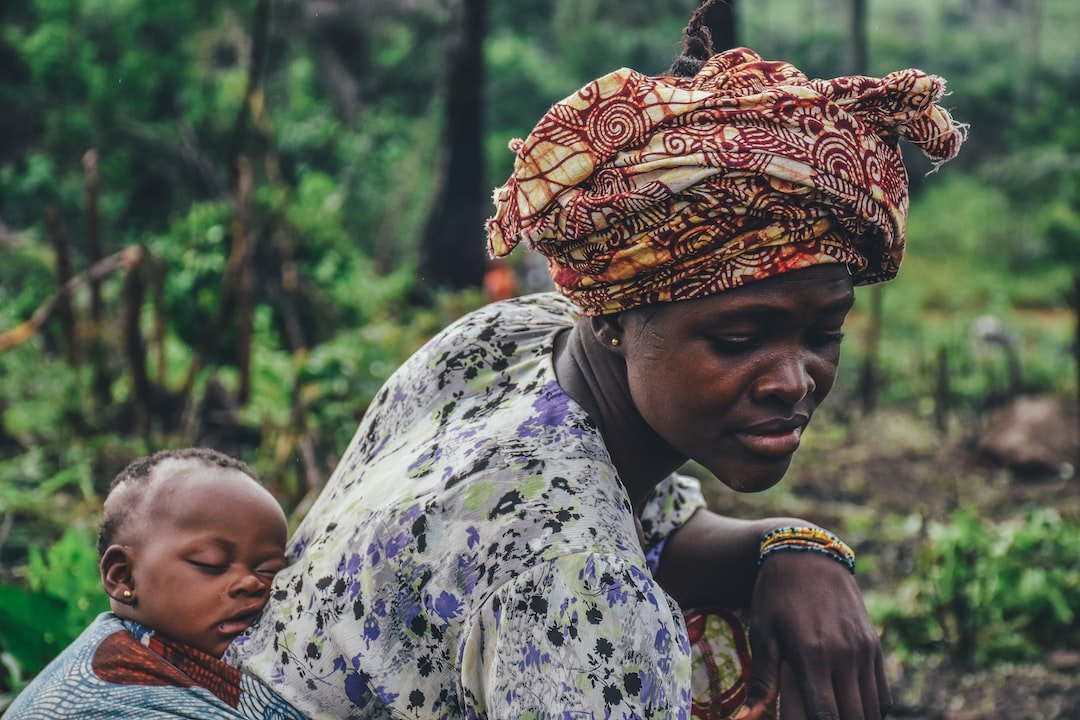Unveiling the Beauty and Significance of African Naming Rituals
Category : African Traditions | Sub Category : African Naming Rituals Posted on 2023-07-07 21:24:53

Unveiling the Beauty and Significance of African Naming Rituals
Introduction:
African cultures are rich and diverse, each with its own unique customs and traditions. When a child is born, there are a lot of naming rituals that take place. African naming rituals are more than just choosing a name; they reflect values, beliefs, and the community's aspiration. In this post, we will explore the importance of African naming rituals in celebrating heritage, instilling values, and fostering a sense of belonging.
1 The celebration of heritage.
African societies use names to connect people to their heritage. Naming rituals can involve choosing a name that reflects the child's heritage. In Nigeria, the family gathers to honor their ancestors and celebrate the new addition to the family at a naming ceremony called "Isebi". African communities pride themselves in their cultural roots and are known for their historical events, traditions and symbols.
2 Uplifting values.
African naming rituals aim to instill values and qualities that the family hopes the child will embody throughout their life. According to specific cultures, names can be influenced by personality quirks, as well as the child's future and circumstances surrounding their birth. In the Luo community in Kenya, a child born during a period of rain might be given a name related to rain, symbolizing abundance and blessings. These names are deep meaning and serve as reminders of the responsibility to uphold family values.
3 Fostering community and belonging is important.
African naming rituals strengthen the sense of belonging and unity within families and wider communities. They involve a lot of people, from the whole village to generations. Everyone participates in the ceremony and offers prayers and well wishes to the newborn. The act of coming together supports the child and their family. The rituals give the opportunity to pass down oral history, cultural practices and traditions from one generation to another.
4 Modern times have adaptation in them.
African naming rituals have deep traditional roots, but have evolved over time to adapt to changing circumstances. African parents face the challenge of merging cultural traditions with modern influences. Some families incorporate both traditional and non-traditional names for their child to reflect the world they will grow up in. The child can embrace their African heritage while also connecting with other cultures and creating a unique identity.
Conclusion
African naming rituals are not just about choosing a name, they are about celebrating heritage, instilling values, and fostering a sense of belonging. These rituals strengthen the bonds within families and communities. African naming rituals are still important to preserving cultural identity and passing down traditions to future generations. We can appreciate the beauty and significance of African culture by understanding and appreciating these rituals.
Leave a Comment:
SEARCH
Recent News
- Zurich, Switzerland is a vibrant city known for its rich cultural scene and diverse music offerings. One unique aspect of Zurich's music scene is the presence of Sudanese music, which has found a home in the city's melting pot of cultures.
- Zurich, Switzerland is a vibrant city known for its picturesque landscapes, rich history, and diverse cultural scene. One fascinating aspect of Zurich's cultural tapestry is the influence of Sudanese culture in the city.
- Zurich, Switzerland is known for its multicultural atmosphere and diverse culinary scene. One of the lesser-known gems of Zurich's food scene is Sudanese cuisine. Sudanese cuisine is a reflection of the country's diverse cultural influences, blending Arabic, African, and Mediterranean flavors to create a unique and delicious culinary experience.
- Zurich, Switzerland, is a vibrant city known for its scenic beauty, rich history, and thriving business environment. One interesting aspect of Zurich's business landscape is the presence of Sudanese entrepreneurs who have made their mark in various industries in the city.
- Visiting Zurich, Switzerland, can be an enriching experience for music lovers from all corners of the world. While the city may not be the first place that comes to mind when thinking about South African music, Zurich's diverse music scene offers a glimpse into the vibrant sounds of this African nation.
- Zurich, Switzerland: A Hub for Libyan Trade
- Zurich, Switzerland is a city known for its picturesque landscapes, high quality of life, and thriving economy. Recently, Zurich has also been making headlines in the energy sector with its growing interest and investment in Libyan energy resources.
- Zurich, Switzerland is a vibrant city known for its high quality of life, scenic beauty, and strong economy. This makes it an attractive destination for businesses from all over the world, including those from Libya.
READ MORE
3 months ago Category :

Zurich, Switzerland is a vibrant city known for its rich cultural scene and diverse music offerings. One unique aspect of Zurich's music scene is the presence of Sudanese music, which has found a home in the city's melting pot of cultures.
Read More →3 months ago Category :

Zurich, Switzerland is a vibrant city known for its picturesque landscapes, rich history, and diverse cultural scene. One fascinating aspect of Zurich's cultural tapestry is the influence of Sudanese culture in the city.
Read More →3 months ago Category :

Zurich, Switzerland is known for its multicultural atmosphere and diverse culinary scene. One of the lesser-known gems of Zurich's food scene is Sudanese cuisine. Sudanese cuisine is a reflection of the country's diverse cultural influences, blending Arabic, African, and Mediterranean flavors to create a unique and delicious culinary experience.
Read More →3 months ago Category :
